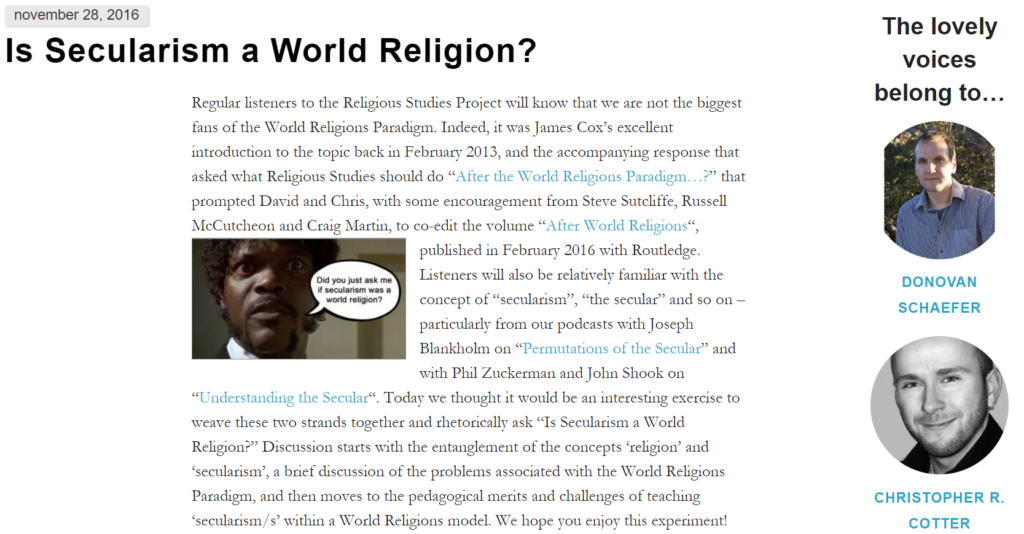In our fifth editors’ pick, Marek Sullivan writes “Few questions are as meta-reflexive as the question ‘Is secularism a world religion?’ It’s now established that secularism and religion are co-constitutive terms: the history of the category ‘religion’ is inseparable from the history of secularisation. But what happens when secularism is rethought as a mode or sub-category of one of its core progenies, ‘world religion’? Donovan Schaefer brings his background in critical theory and material religions to bear on this mind-bending question, leading us through the history of the secularisation thesis, the idea of ‘world religions’, the Protestant genealogy of secularism, and the urgency of parsing the academic study of secularism into historically and culturally differentiated variants. Despite the broad sweep of the interview, I was left wanting more!”
During our “summer break”, various members of the RSP editorial team will be sharing their thoughts on some podcasts from the RSP archive that they think you should listen to (again). Editors’ Picks, if you will. These aren’t necessarily ‘favourites’, but just some podcasts that came to mind that the author has found useful for whatever reason. We hope you enjoy these musings, and that you’ll maybe share some of your own in the comments, on social media, or by sending us an audio or video clip. And we’ll be back with new content on 17 September! Thanks for listening.
Continuing the ‘series’ is our new features co-editor, Marek Sullivan.
Few questions are as meta-reflexive as the question ‘Is secularism a world religion?’ It’s now established that secularism and religion are co-constitutive terms: the history of the category ‘religion’ is inseparable from the history of secularisation. But what happens when secularism is rethought as a mode or sub-category of one of its core progenies, ‘world religion’? Donovan Schaefer brings his background in critical theory and material religions to bear on this mind-bending question, leading us through the history of the secularisation thesis, the idea of ‘world religions’, the Protestant genealogy of secularism, and the urgency of parsing the academic study of secularism into historically and culturally differentiated variants. Despite the broad sweep of the interview, I was left wanting more!
You can listen to the podcast below, view and download from the original post, or find it on iTunes and other podcast providers.
Don’t forget about our Patreon appeal – if you can spare even $1 a month we could really do with your support. And remember, you can use our Amazon.co.uk, Amazon.com, or Amazon.ca links to support us at no additional cost when buying academic texts, Pulp Fiction memorabilia, astronaut ice cream and more.


